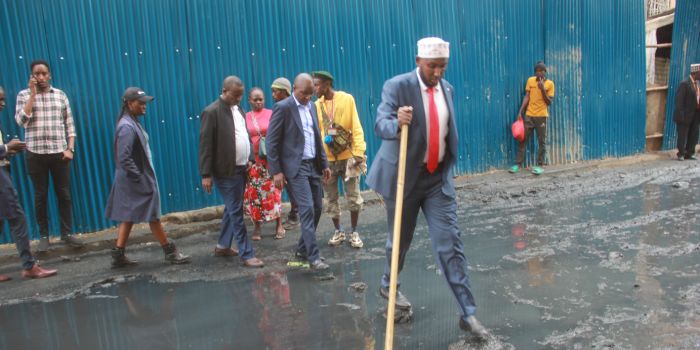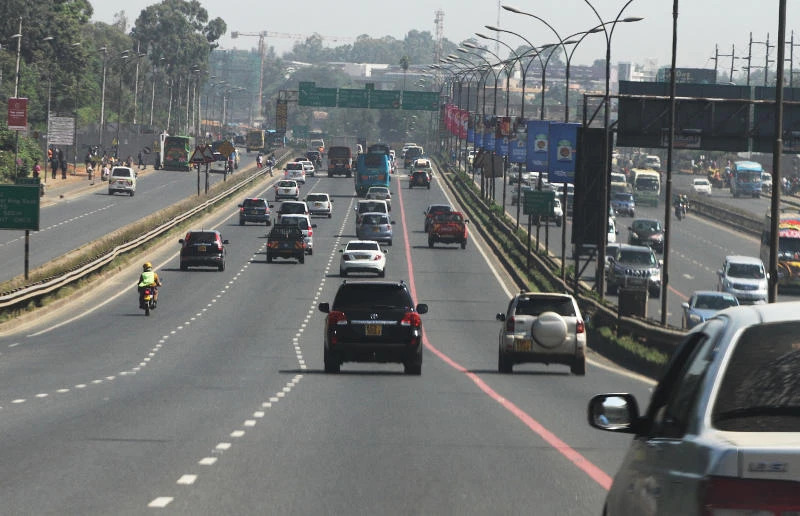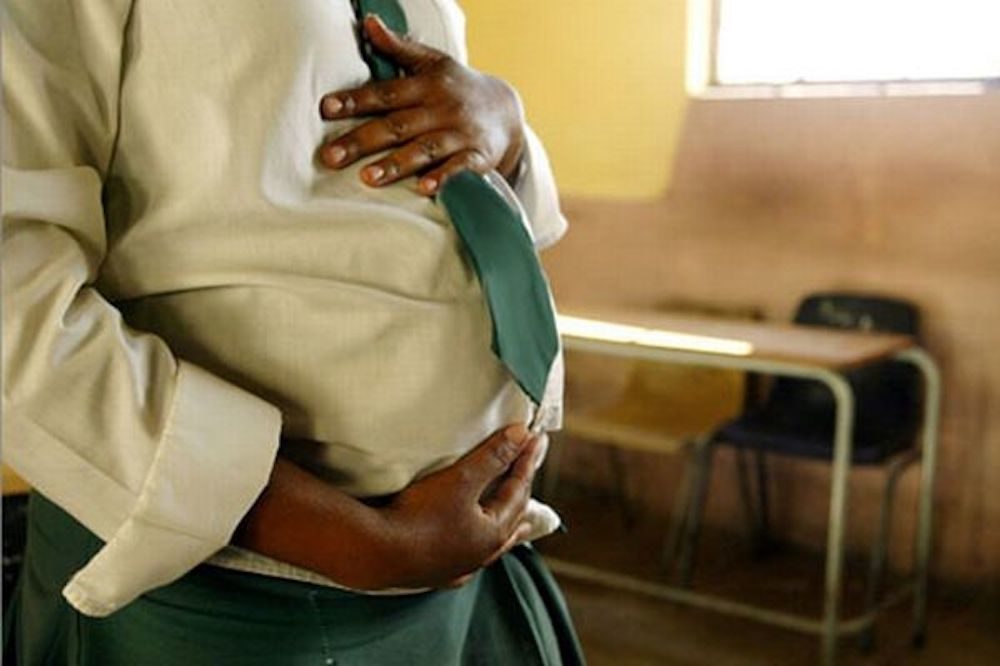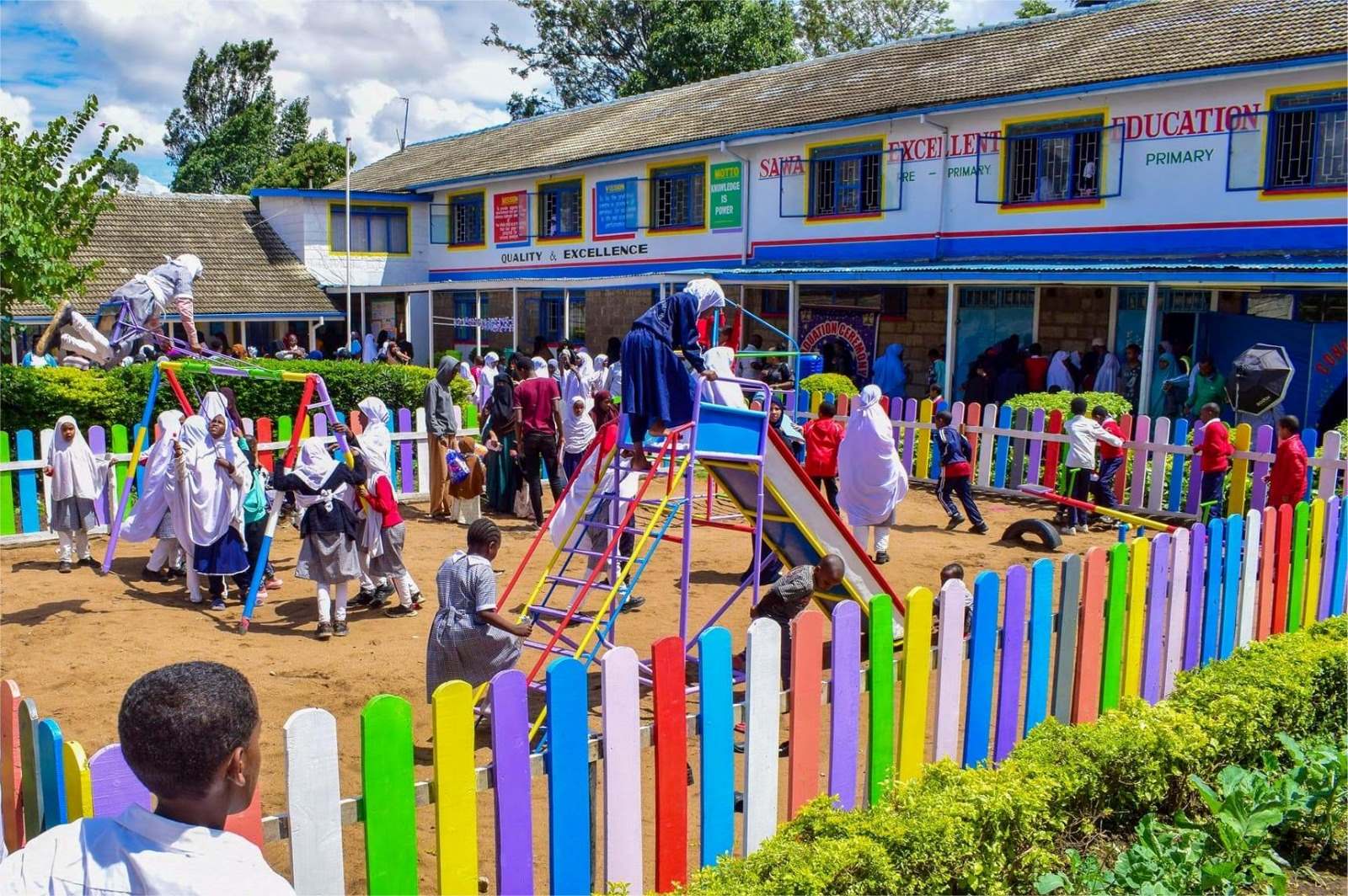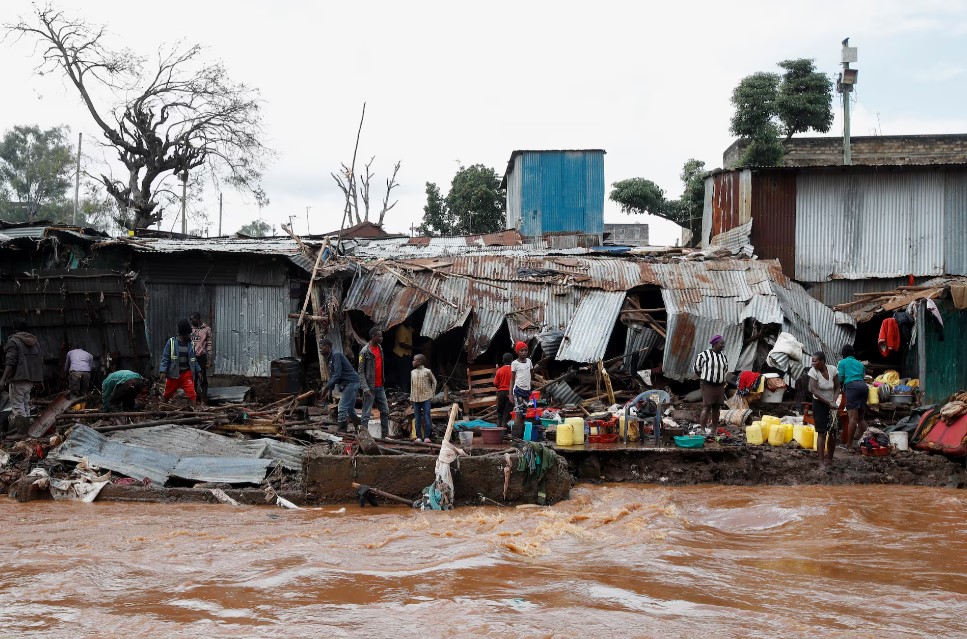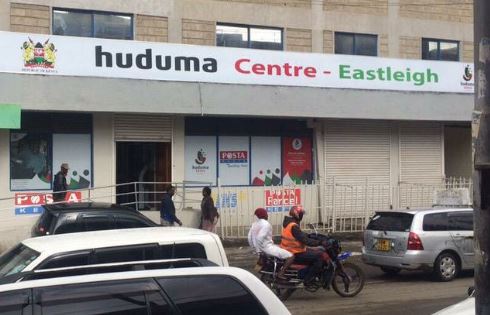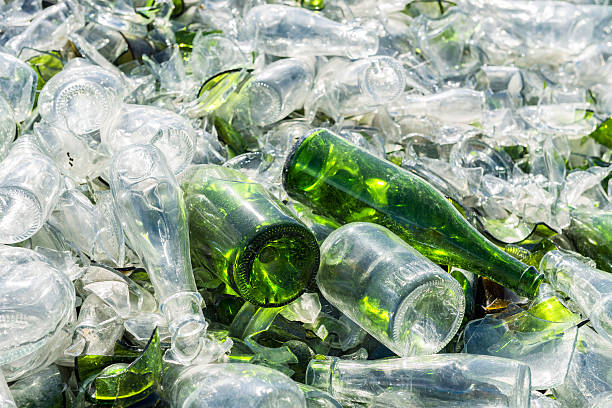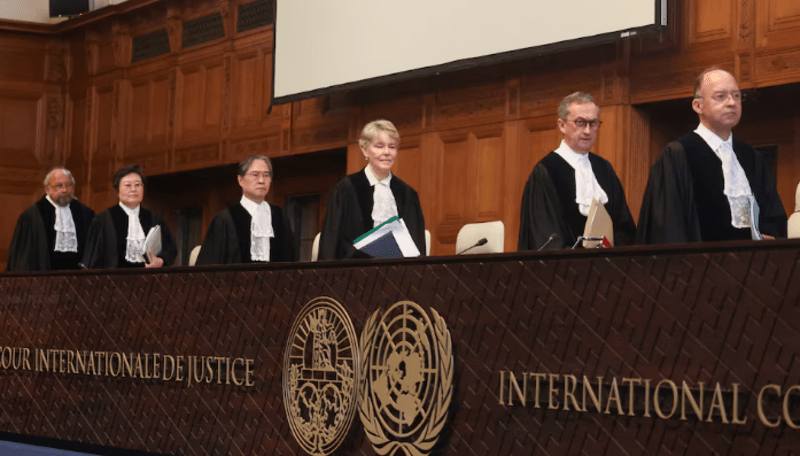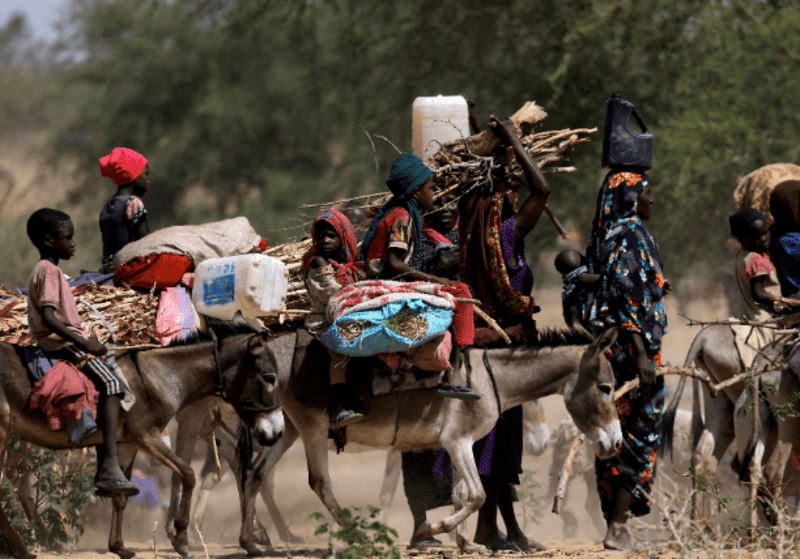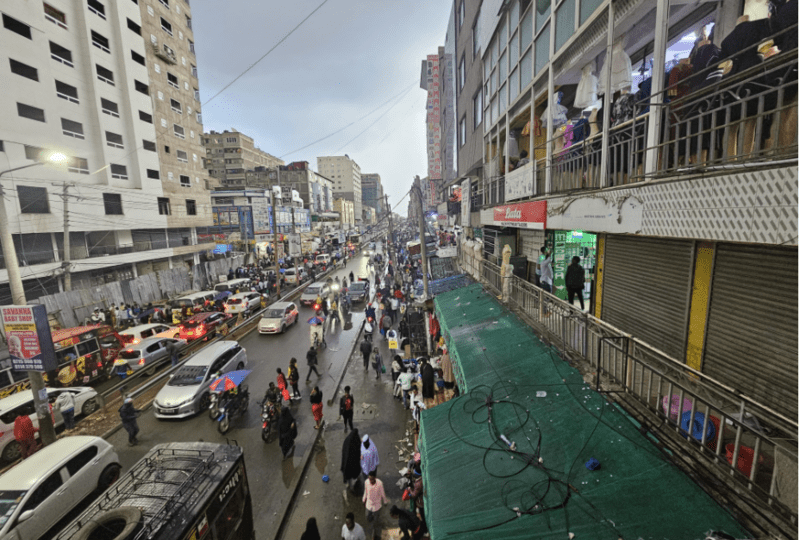'Disaster in waiting': Embakasi gas explosion victims slam authorities
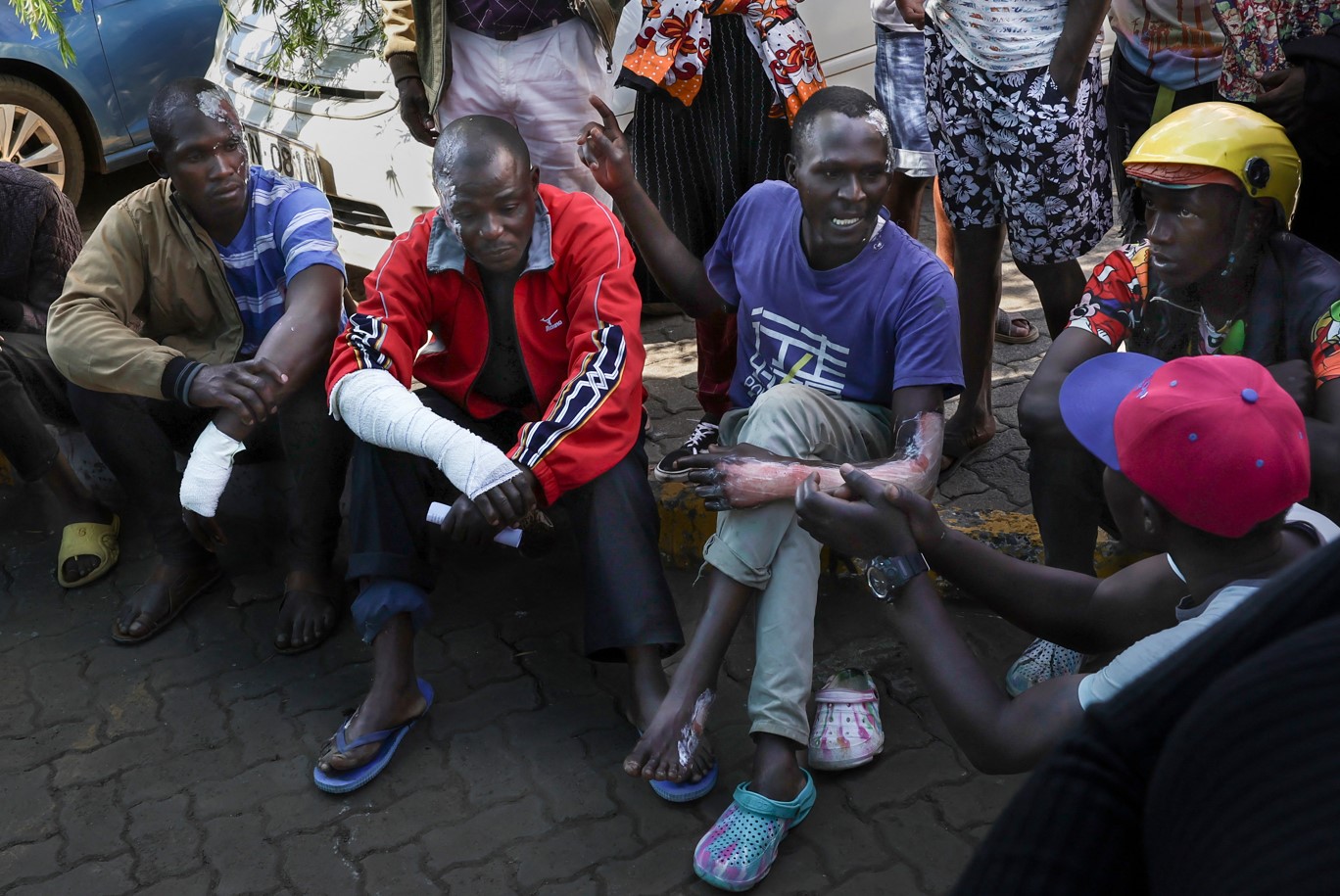
By Agency |
Citizens say they had long foreseen the tragedy, describing how the residential neighbourhood in the Embakasi area had allegedly also been home to gas companies, with trucks arriving every day.
The deadly gas explosion that engulfed Embakasi Village in Nairobi was a disaster waiting to happen, shaken residents told AFP on Friday as they raged against the government.
Nearly 300 people were rushed to hospital following the incident in Mradi and at least three were killed when a truck packed with gas cylinders exploded just before midnight on Thursday, turning the sky orange and setting fire to nearby homes and parked cars.
Keep reading
Plumber Charles Maingi was relaxing at home when he suddenly heard a loud blast.
"I rushed out to check and that is when I saw a huge fireball," he told AFP.
"There was heat everywhere and we started running away because the fire was coming in our direction," he said, his neck bandaged with visible burns along his ears and head.
The force of the explosion sent vehicle parts flying as terrified people fled for safety, screaming for their lives.
Sylvanus Abwayo was thrown off a motorcycle by the blast and scrambled to his feet as the flames drew nearer.
"I just don't know how I managed to escape because we were too close to this place that was covered in smoke and fire," he said.
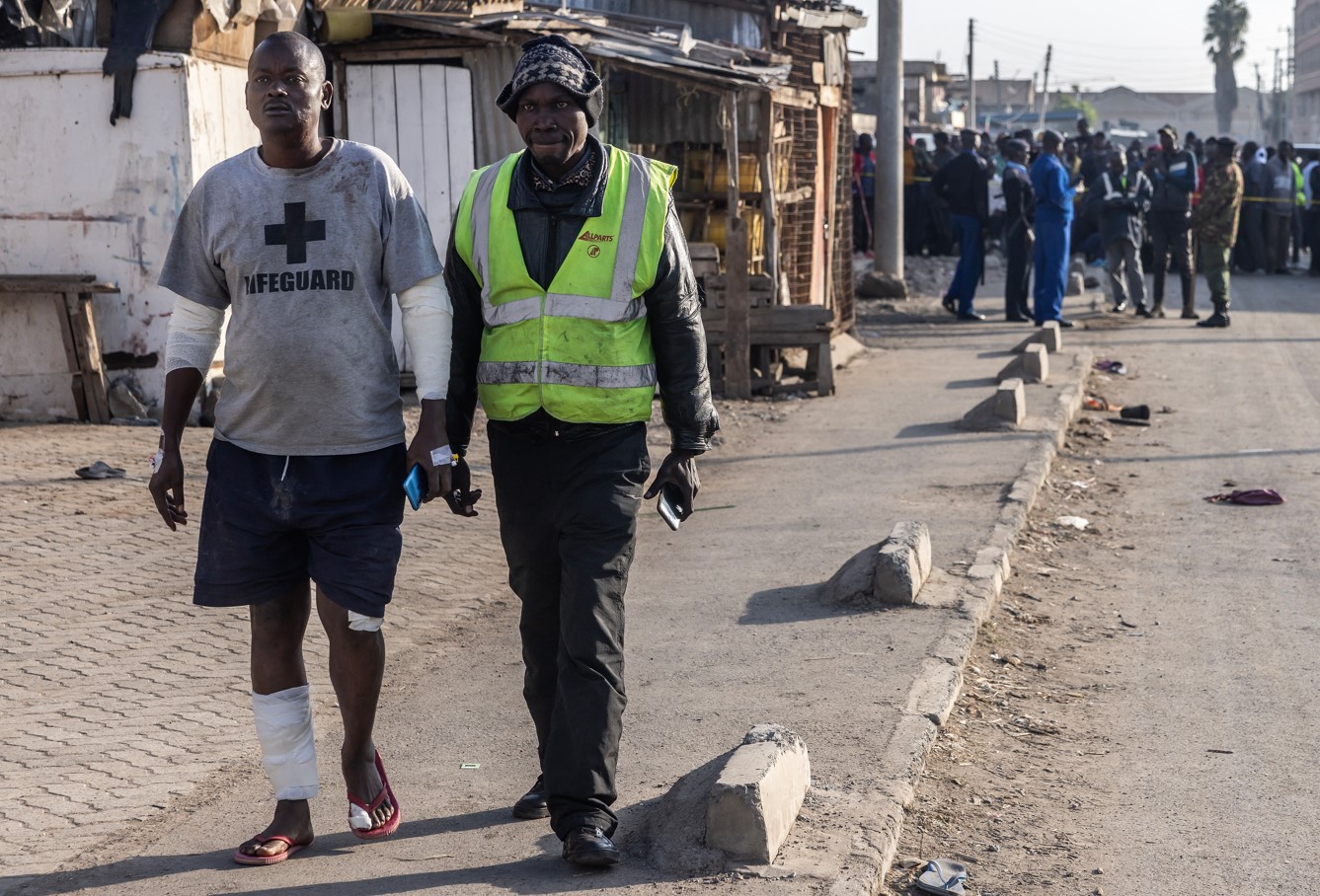 An injured man walks in the Embakasi neighbourhood with heavily damaged houses and shops, a day after a gas explosion in Nairobi, on February 2, 2024. (Photo: Luis Tato/ AFP)
An injured man walks in the Embakasi neighbourhood with heavily damaged houses and shops, a day after a gas explosion in Nairobi, on February 2, 2024. (Photo: Luis Tato/ AFP)After the firefighters finally managed to contain the blaze, some nine hours after it erupted, the mood in the Mradi estate was heavy with shock, sadness and anger.
Citizens told AFP they had long foreseen the tragedy, describing how the residential neighbourhood in the Embakasi area of southeastern Nairobi had allegedly also been home to gas companies, with trucks arriving every day.
"We don't even know what business goes on in these godowns because some of them have no names. All we see are vehicles going in and out including the gas trucks," said Eliud Mulandi, a carpenter.
Other residents echoed his concerns.
"Every day there are huge trucks with gas parked outside and we live here," said James Bor, a 47-year-old motorcycle taxi driver.
"Let the government move these gas plants... We will demonstrate and block these roads until it happens," he warned.
Chaotic scenes
Felix Kirwa, a motorcycle taxi driver, told AFP he had just returned home when he heard two blasts that caused his house to shake and shattered a window.
The father of three grabbed his youngest child -- a four-year-old boy -- and ran out of the house, losing track of his other children in the confusion.
"I didn't know where the two other children ran to until this morning when I located them, and they are safe," he said, nursing a bandaged broken leg.
According to an AFP journalist, several houses and vehicles were burned, with images of the scene showing the wreckage of charred vehicles.
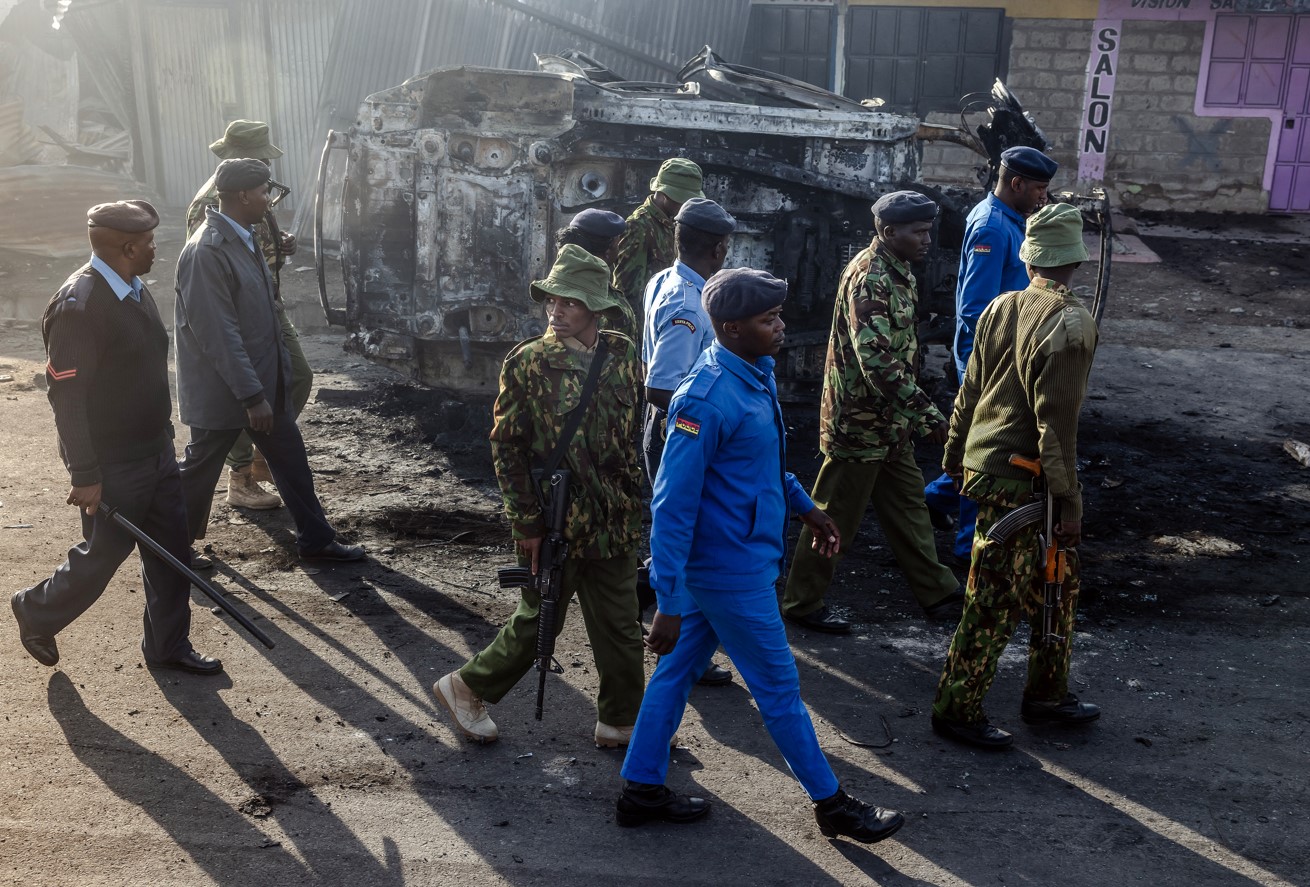 Kenyan police officers walk past heavily damaged houses and shops, a day after a gas explosion in the Embakasi area of Nairobi, on February 2, 2024. (Photo: Luis Tao/ AFP)
Kenyan police officers walk past heavily damaged houses and shops, a day after a gas explosion in the Embakasi area of Nairobi, on February 2, 2024. (Photo: Luis Tao/ AFP)We were in the house and heard a huge explosion," James Ngoge, who lives across the street from where the fire broke out, told AFP.
"The whole building was shaken by a huge tremor, it felt like it was going to collapse. At first, we didn't even know what was happening, it was like an earthquake.
"I have a business on the road that was completely destroyed."
Stella Mbithi, a roadside vegetable vendor, was serving customers when she saw the sky turn orange with flames.
"We all took off. It was chaotic because people were screaming all over and vehicles were honking horns. I fell down several times," she told AFP. "I am lucky to be alive."
The explosion forced many of the area's residents to spend the night outside, with large columns of black smoke seen billowing from the area as police cordoned off the affected area.
Some people could be seen collecting their belongings and surveying the damage to their homes.
'Government so irresponsible'
The Energy and Petroleum Regulatory Authority (EPRA) said Friday it had denied permission three times last year for the construction of a liquefied petroleum gas storage and filling plant at the site of the explosion.
"All applications were rejected as they did not meet the set criteria for an LPG storage and filling plant in that area," EPRA said in a statement.
"The main reason for the rejection was failure of the designs to meet the safety distances stipulated," it said, noting "the high population density around the proposed site".
But residents alleged that the gas businesses in the neighbourhood had operated with impunity and little regard for citizens' safety.
"Why do we have gas plants in the middle of estates? This is a residential area and that is a gas plant right there. And it is not one, there are several," Magdalene Kerubo, 34, told AFP.
"Our government is so irresponsible," she said, fuming.
 A man stands next to heavily damaged houses and shops, a day after a gas explosion in the Embakasi area of Nairobi, on February 2, 2024. (Photo: Luis Tato/ AFP)
A man stands next to heavily damaged houses and shops, a day after a gas explosion in the Embakasi area of Nairobi, on February 2, 2024. (Photo: Luis Tato/ AFP)Fish vendor Felisters Anyango said she had lived in Mradi for a long time with her two children and a granddaughter.
"The government always waits to react... Now you see there are police and government people all over here, yet they knew all along about this problem of gas plants in estates," the 58-year-old told AFP.
"We need the gas plants to be moved from residential areas," she said.
"Let them move because this is a disaster in waiting."
Past incidents
The Embakasi Village is the latest following several similar ones in the past.
In 2018, a blaze at Nairobi's Gikomba market killed 15 people and injured at least 70.
Nine of the dead were in an apartment block next to the market while six others -- including four children -- died of their injuries in hospital.
The pre-dawn blaze destroyed many of the market's wood and tarp stalls where second-hand clothes, shoes and vegetables are sold.
In 2011, more than 100 people were killed in a slum in the Embakasi area when fuel spilled from a pipeline and burst into flames.
Story by AFP




